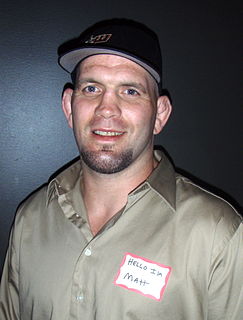A Quote by Denise Duhamel
I don't know if there are topics that I unconsciously avoid, but as soon as they pop up in my writing, I try to take on those topics, whether or not I publish the poems.
Related Quotes
It's amazing to me: when people start their career, you write about maybe a couple of topics, and you find that as you grow older, a lot of those topics never resolve, because I think your job as a writer is to pose questions as you see them. I don't know if we're supposed to give answers to people, because I don't know if we have any.
Structure is what makes communication hang together. It's like the rails that a train runs on. Without them, things wouldn't move very far. If you only have time to do one thing in your presentation, make sure it has a clear and identifiable structure. Without this, you'll have no credibility. Once you've organized your ideas, if you step back and look at it, many times we've organized topics. We've strung together a structure with organized topics. At this point, change your topics into messages.
After reading all that has been written, and after thinking all that can be thought, on the topics of God and the soul, the man who has a right to say that he thinks at all, will find himself face to face with the conclusion that, on these topics, the most profound thought is that which can be the least easily distinguished from the most superficial sentiment.







































